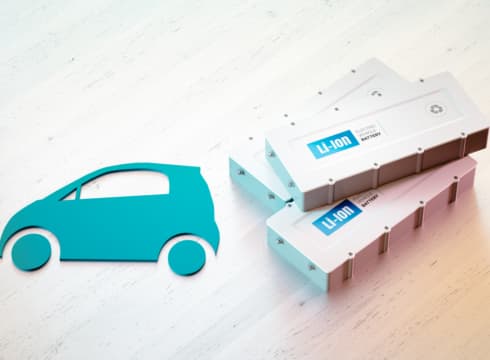The standards would be flexible enough to promote innovation and enable value addition in the sector, Department of Consumer Affairs Secretary Rohit Kumar Singh said
Singh said that the standards are being developed considering India’s average temperature conditions during the majority part of the year
Industry players are of the opinion that it would create some hindrance to the growth of the EV industry in the short- to medium-term, but would help in the long-term
Inc42 Daily Brief
Stay Ahead With Daily News & Analysis on India’s Tech & Startup Economy
As the Department of Consumer Affairs prepares to lay down the standards for batteries of electric vehicles (EVs) through the Bureau of Indian Standards (BIS), its secretary has said that they would not become an obstacle in the growth of the EV industry.
Speaking to Financial Express, Department of Consumer Affairs Secretary Rohit Kumar Singh said that the standards would be flexible enough to promote innovation and enable value addition in the sector.
After a series of EV fire incidents in the last few months, the Ministry of Consumer Affairs is preparing battery norms through the BIS, which would be initially applicable for electric two-wheelers and later expanded to four-wheelers.
Singh said that the standards are being developed considering India’s average temperature conditions during the year.
For the uninitiated, the BIS is the national standard body under the Department of Consumer Affairs. The BIS standards are likely to include specifications on size, connectors, quality of cells and the capacity of the batteries, as per earlier reports.
Faulty Batteries Behind Fires
The Centre had tasked the Centre for Fire, Explosive and Environment Safety (CFEES), the fire science and engineering arm of the Defence Research & Development Organisation (DRDO), to find out the reasons behind the spate of EV fires. The DRDO attributed the fire incidents to defects in EV batteries, including the designs of the battery packs and modules.
Earlier, several industry leaders told Inc42 that the lithium-ion (Li-ion) battery cells are highly sensitive in nature and those manufactured in other countries might cater to the needs of colder regions. India has very unique requirements in terms of temperature conditions and vehicle usage, hence it needs batteries and other equipment as per those needs, they said.
Hence, the industry experts are largely viewing the latest government move to lay down uniform standards for EV batteries as a positive one.
Would The BIS Standards Be An Obstacle For the EV Industry?
Industry leaders are of the opinion that the new standards would create some hindrance in the growth of the EV industry in the short- to medium-term, but would ultimately drive the overall ecosystem growth in the long-term.
Talking to Inc42, Puneet Jain, founder of Natural Battery Technologies, a battery pack manufacturer, said that the cost of compliance would go up due to the standards, which would ultimately hit the customers.
Battery pack manufacturers so far had more flexibility in trying out new designs for different EV original equipment manufacturers (OEMs) and their various models of scooters.
“Now, that flexibility will be reduced because each time we design a new (battery) pack, we will have to go for BIS, which would increase the cost of compliance and we will transfer it to the OEMs,” said Jain. “Other than that, I see it as a positive move because it will also reduce the people (in the ecosystem) who are not taking all the necessary steps to make the battery packs.”
According to Jain, making battery packs involves more intensive testing than manufacturing batteries.
Since the DRDO report found issues in batteries, including the designs of the battery packs and modules, the BIS norms would be applicable to battery packs as well. The pack manufacturers would have to maintain standards in terms of construction, material use, and compliance with the charging and discharge factors that the government might set, said Jain.
He said the government’s intervention would help the EV industry regain the lost trust, which would lead to an uptick in sales.
Varun Goenka, CEO and cofounder of battery-swapping network provider Chargeup, echoed a similar sentiment.
“With the specifications coming in, there can be a certain slowdown in terms of implementing those standards and pricing of the vehicles,” he said, adding that in view of the recent fire incidents, this is a good move.
He expects to see some disruption in the supply chain in the initial days after the new standards are set.
The two-wheeler EV segment witnessed a sharp decline in May 2022 sales, which could be directly attributed to the recent escooter fire incidents as well as the global supply chain crisis for EV batteries.
The total electric two-wheeler sales in the country stood at 39,477 units in May, a decline of 20% from April and 20.5% from March 2022, as per Vahan data.
{{#name}}{{name}}{{/name}}{{^name}}-{{/name}}
{{#description}}{{description}}...{{/description}}{{^description}}-{{/description}}
Note: We at Inc42 take our ethics very seriously. More information about it can be found here.


